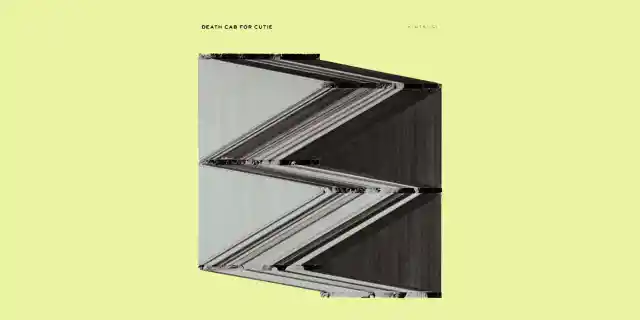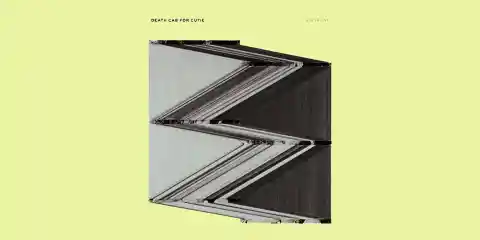

Death Cab for Cutie is a different band than they were 10 years ago. This should go without saying; they’ve started families, felt the highs of marriage and lows of divorce, and they’ve certainly grown as musicians. I’ve grown, too. No longer am I the junior high student in unrequited love listening to We Have the Facts and We’re Voting Yes and laying in my bathtub, or exiling myself to the basement to the tune of Transatlanticism. High school was a weird time in my life.
Now I’m in college, and I skip to a brisker tune. My days are brighter and filled with college radio, Netflix, meal plans, and journalistic meaning. I no longer feel the burden of finding love at 17. But I still have an undeniable connection to music that moves me – music that makes me truly feel something. While Death Cab for Cutie once did that better than anyone, it would appear that Kintsugi represents a third and final strike in a series of increasingly cold, manufactured, and nearly mechanical albums.
Nearly every review that’s been published for Kintsugi mentions the departure of founding guitarist and longtime producer Chris Walla, and while he still contributed guitar to this album, his resignation leaves its mark. Enter Rich Costey, whose slick and glossy production can reveal interesting and previously unseen nuances in songs like opener “No Room in Frame,” but at other times, rely too much on setting frontman Ben Gibbard upfront (“Hold No Guns”) and at others completely wringing these songs dry of any emotion present (“Everything’s a Ceiling”). Elsewhere, Jason McGerr’s skills behind the drum kit find themselves lost in the mix. Another notable issue is the album’s baffling sequencing, which places the album’s three or four highlights upfront, followed by two consecutive acoustic tracks, and finally, a wholly underwhelming back half.
Gibbard’s vulnerability has taken a dive both lyrically and vocally. “Good Help (Is So Hard to Find)“ displays the vocals of a post-Plans Gibbard perfectly, void of any emotion in favor of technical proficiency. As a whole, the songwriting simply isn’t up to par anymore. Even if we take away the standards set by the band’s earlier work, we’re left with a case of bland, vanilla, “offensively inoffensive” indie/alt-rock. Gone are the dark, experimental cuts of Narrow Stairs or even the strong melodies of Codes and Keys – in their place, forgettable verses with slightly less forgettable choruses, complete with repeating lines where Gibbard would once tack on some of his most devastating lyrical work (“You’ve Haunted Me All Your Life”).
Still, Kintsugi shines at times in a way only Death Cab for Cutie can. Take the chorus of “No Room in Frame,” a heartbreaking tale that finds Gibbard singing, “Was I in your way when the cameras turned to face you?/No room in frame for two,” followed by, “And I guess it’s not a failure we can help/and we’ll both go on to get lonely with someone else.” “The Ghosts of Beverly Drive” take influence from current indie kings The National, both in title and in its breathtaking instrumental prechorus. “El Dorado” starts with a guitar riff that rivals some of the best in the band’s catalog. By the time the album’s closing piano ballad, “Binary,” rolls in, the record ends on a somewhat somber note that wraps the album up not unlike “Stable Song” once did. Unfortunately, it’s just not enough to pull Kintsugi’s midsection from its penchant for paint-by-numbers indie rock.
Earlier, I mentioned a connection to music that still hits me on an emotional level. Positively or negatively, I write about the bands and songs that make feel something. But for once, I find myself writing about an album that makes me feel almost nothing. It’s not a bad album; it’s extraordinarily mediocre. But for Death Cab for Cutie, I suppose when your weakest album still has as many good cuts as Kintsugi, you’re still in okay shape. Another fact that reviews can’t seem to ignore is the definition of “kintsugi,” the Japanese art of repairing broken pottery with gold, silver, platinum, and similar metals. Unfortunately, sometimes no matter how good you are at picking up the pieces, it can still be easy to see the cracks.